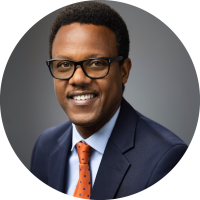Exploring Factors Shaping the Constraints of Recreation in Forests for People of Color
 Despite being the fastest growing group of the US population, people of color are underrepresented in forest-based recreation opportunities. Yet, the freedom for all people to recreate in forests is an important American tradition. Equitable forest recreation is valuable; it enhances human wellbeing and public support for and stewardship of public forests. Research shows that recreation constraints for people of color are individual (e.g., finances), interpersonal (e.g., family support), contextual (e.g., home environment) and systemic (e.g., regulations/laws). Research also shows that people of color engage in constraint negotiation to participate in recreation. However, some questions remain unanswered:
Despite being the fastest growing group of the US population, people of color are underrepresented in forest-based recreation opportunities. Yet, the freedom for all people to recreate in forests is an important American tradition. Equitable forest recreation is valuable; it enhances human wellbeing and public support for and stewardship of public forests. Research shows that recreation constraints for people of color are individual (e.g., finances), interpersonal (e.g., family support), contextual (e.g., home environment) and systemic (e.g., regulations/laws). Research also shows that people of color engage in constraint negotiation to participate in recreation. However, some questions remain unanswered:
- What are the most applicable recreation constraints for people of color in forest-based recreation environments?
- How do recreation constraints interact to influence motivations for people of color to recreate in forests?
- What is the mental process in which constraint negotiation occurs for people of color?
Dr. Ian Munanura explored these questions during our Nature and Health Community dinner on October 27, 2022.
Bio
Ian is an Assistant Professor of nature-based tourism in the Department of Forest Ecosystems and Society at Oregon State University. His research in Africa focuses on understanding the links between the protection of forests, community livelihoods and wellbeing, and forest-based tourism. In the United States, Dr. Munanura’s research aims to understand the forest-based recreation constraints for people of color. Previously, in Africa, Dr. Munanura led and advised USAID-funded ecotourism projects, served as country director for the Wildlife Conservation in Rwanda, and served as a director for IUCN’s (International Union for Conservation of Nature) Forest Landscape Restoration Program for East and Southern Africa region.
About Nature and Health Community Dinners
Our Community Dinners are a chance for the community to learn about local Nature and Health research, programs, and policies. They also provide an opportunity to connect with Nature and Health colleagues and experts from around Puget Sound. Your gift can help sustain Nature and Health’s community-building efforts.
Share Ideas for Future Speakers
If you’d like to present at an upcoming session or if you have an idea for a speaker, please email us at natureandhealth@uw.edu.
Learn About Upcoming Events
Check out our calendar of events and connect with us on Facebook and Instagram to learn about upcoming talks.